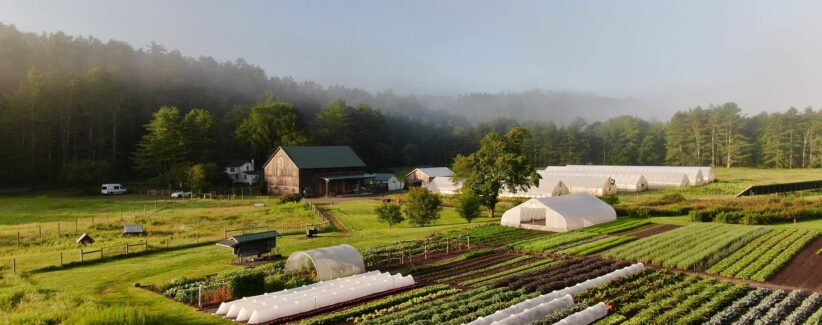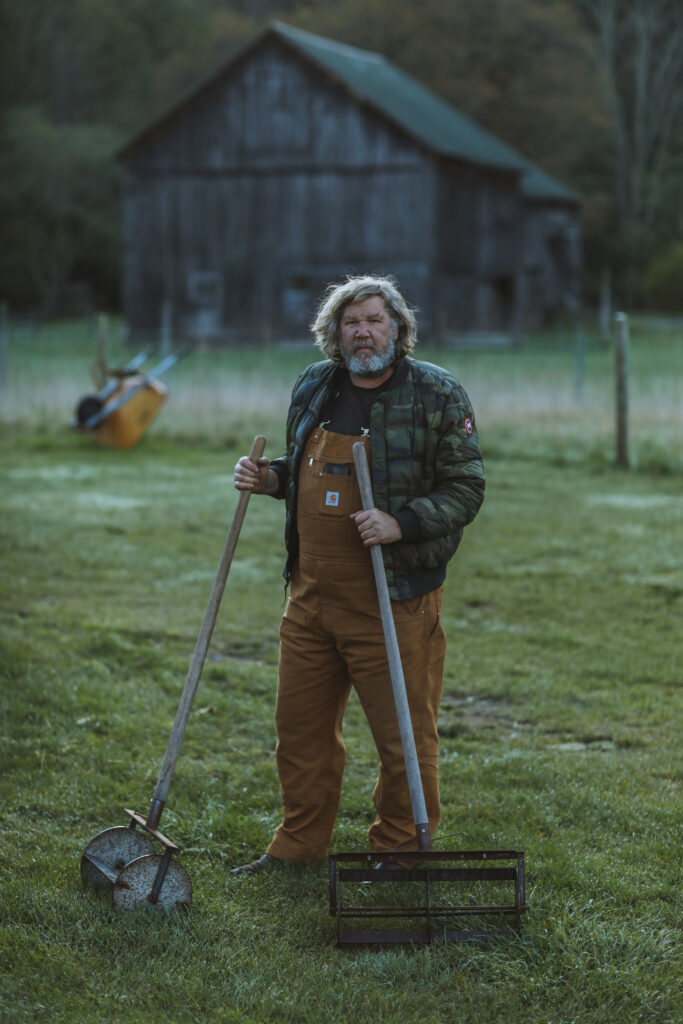Giving Back With Farm Tools and Educational Resources

Gaining Ground calls its approach “simple” — growing high-quality food to give to people who need it. Neversink Farm in the Catskills classifies its strategy as a “radical” one. And yet, the link between our two approaches is a natural one. Neversink is an organic farm with one of the highest production-per-square-foot outputs in the nation. The radical part? It’s rather extraordinary, really. It’s all done by hand. You won’t find tractors in the fields. Like Gaining Ground, the farm is no-till.
Organizations like Gaining Ground benefit from Neversink ‘s appropriately named Give Back Program, which provides donations, such as long-term educational and financial support, directly to not-for-profit working farms. It recently helped boost our efforts by granting us nearly $20,000 in education and farm tools, including all the items from this season’s wish list.
We spoke with farmer Conor Crickmore about Neversink Farm, the Give Back Program and the role agriculture plays in social justice.
Gaining Ground: Tell us a bit about the farm and its history.
Conor Crickmore: My wife and I moved to the Catskills in 2009 to homestead in a fishing cabin. At the time, people thought the best you could do was pay $100,000 for an acre of land and pay yourself $30,000 per year. We were doing four to six times that. We felt it was our duty to document the whole thing. So, along with a friend, we created a farm course to help other farms succeed.

GG: We have something important in common: Our dedication to no-till agriculture. Why are you committed to this approach, and could you share about any challenges and/or successes that keep you on the no-till path?
CC: The first year, we used BCS tractors. It’s what you did, but it was a narrow approach to things. Some people move to no-till for aspirational reasons. I just hated driving the BCS around, turning it on and fixing it if it was down. I asked, ‘Do I really need to use the BCS? Is this essential?” We had to redo and re-measure the beds. It seemed like it was a lot of work, and it was, but it was a great business decision that fell in line with our philosophy. It all comes together when I’m at the farm and it’s quiet. How it affects the environment works well for your vegetables, and the whole philosophy behind it is part of it as well.
No-till forces you to be a better and more efficient farmer. Your farm ends up looking better. You know it when you look at a bed of vegetables and it looks healthy, you’ve done it right. If you look out at the field and it looks beautiful, you’ve done it right.
GG: What inspired the Give Back program?
CC: Even when we started Neversink Tools, [the company they started to design and manufacture small scale farming tools] the idea was to move farming forward. We thought there were so many gaps in tools. As the company grew, it became successful. It was always in the plan to try and figure out how to continue helping farms — do something better for the world. I’m not someone who goes out and protests. I want to cheer them on, though. I want to support other people’s work in it. Everyone has a role. That is what I wanted our company role to be, but we needed to get there first.
Along the way, we had a lot of people asking for free tools, but we wanted to focus on a specific mission, which was social justice. It was hard to find—there are a lot of organizations doing great work, but it was hard to find things that aligned with what we were looking for because we also wanted to support farms that were efficient and successful. You guys are, and that’s apparent. You’re not only doing great work for the community and helping feed people, but you’re working like a good farm business. It’s organized, clean and productive. There’s obviously thought gone into it—we need to run this thing like a business. Creating great vegetables in a manner that makes sense. That shows—you can immediately see something like that.
GG: How many farms are you working with and how did you choose them?
CC: We’ve never really cared where the farms are. We limit it to people we really like and let them have whatever they want. We’re always on the lookout for more.
Top Photo credit: Neversink Farm.